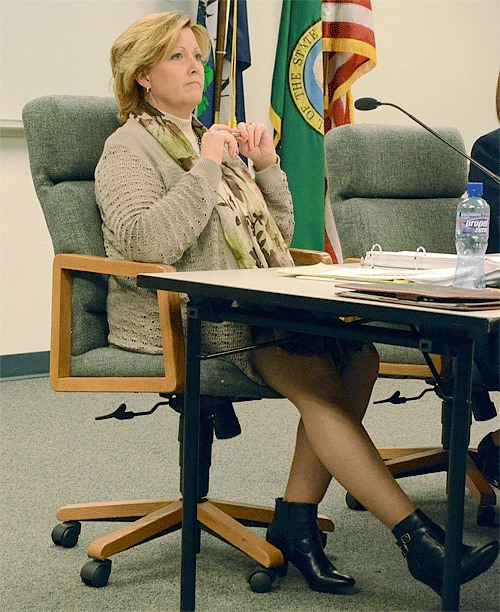A state expert has reviewed Island County Commissioner Kelly Emerson’s allegations that the board has run afoul of open public meeting laws and believes further investigation is warranted.
Tim Ford, government accountability ombudsman for the Office of the Attorney General, confirmed that he had received Emerson’s complaints and looked them over. He made it clear that while he is pursuing the matter further with plans to contact the Island County Prosecutor’s Office for more information, he is reluctant to make any preliminary statements.
Ford said he’s learned that Island County Commissioners Helen Price Johnson and Angie Homola, both Democrats, are up for election this year and is wary that his opinion is possibly being sought for political purposes.
“A lot is going on here and I want to proceed carefully before responding,” Ford said.
As an ombudsman, Ford has no power to levy fines or take regulatory action against the board. He said any opinion he issues would be just that, an opinion.
Price Johnson, chairwoman of the board, has stated previously that she believes the accusations are groundless and that she is confident the commissioners have done nothing unusual or illegal.
Last month, Emerson, a Republican, leveled charges against the board but particularly her fellow board members of abusing tenets of the Washington Open Public Meetings Act for holding unwarranted executive sessions.
On Aug. 1, Emerson declined to participate in a closed-door meeting with the board concerning the sale of real estate, one of the few topics that can be discussed in secret under state law.
Before the meeting, she distributed an unspecific news release that indicated open public meeting violations by the board had been ongoing and referenced Whidbey Island Naval Air Station’s proposal to install a new jet fuel pipeline to the airbase.
Ford got her complaint and asked for further explanation. She submitted another letter detailing a list of past executive sessions in which she had concerns, including those pertaining to the Navy pipeline.
An earlier closed meeting on the topic, before the one she decided not to attend, was called to discuss the sale of real estate and Emerson said the discussion really didn’t fit the spirit of the state’s exemption.
The law allows real estate to be discussed in secret session because public knowledge could affect price and thereby negatively impact the public’s dime.
“The Navy cannot pay more than fair market value; we cannot sell the public’s property for less than fair market value and I don’t see how public knowledge would have affected price,” she wrote.
While there are restrictions concerning the purchase and sale of property by public agencies, it’s unclear whether Emerson’s accusations are accurate, as Ford declined to discuss details of the charges until after he’s spoken with the prosecutor’s office.
Emerson said in her letter that she had met with a deputy prosecutor to discuss executive sessions and Ford believes a discussion with that attorney might provide him with additional background.
Ford said he expects to announce his findings soon.



